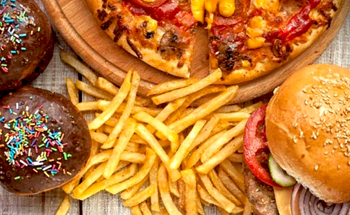Kerala: The opening salvos of the fight against fat have been fired in the southern Indian state of Kerala.

With Kerala having the second highest rate of obesity in India, the new tax is a "preventive measure," the state's finance minister Thomas Isaac told the BBC.
"People are eating a lot of junk food and rejecting traditional food," Isaac said.
The tax will be levied in fast food chains like McDonald's, Burger King, Pizza Hut and KFC. It's the first state in India to impose such a tax.
"The fight against fat has just begun," Isaac told the BBC.
Already, some are questioning the efficacy of the tax.
"Why just burgers and fries, Indian food is also laden with empty calories, which give no concrete nutrition - take for instance vada pao or bhajiyas, butter chicken, dal makhni or paneer makhni or even ras malai, barfi and other Indian sweets. So really speaking, the fat tax should cover a lot of foods," Zainab Gulamhusein, a clinical dietician, told the Times of India.
Others say that the tax is unfairly singling out multinational fast food chains.
"A lot of local food is more fatty and unhealthy. I don't think the tax is a bad thing but it has to be comprehensive and acceptable to all the stakeholders," Isaac Alexander, a local cafe owner, told the BBC. "Otherwise it is discriminatory. Just because you serve pizza and burger doesn't mean other people are serving healthy food."
Indeed, the finance minister himself said that the tax is designed to target Kerala's elite, according to Shereen Bhan, managing editor of CNBC-TV18. The tax, the minister said, "targets the rich and not the common man."
Several other countries already have a fat tax in place.
Denmark introduced the world's first ever fat tax in 2011, when it implemented a tax on all foods with a saturated fat content above 2.3 percent. The government scrapped the tax in 2013, however, because it found that Danes were buying high fat foods across the border, and also that the tax only increased companies' administrative costs.
Hungary also has a fat tax, which it rolled out in 2011, taxing foods that are high in fat, salt and sugar. Mexico has a similar tax, as well as a one-peso-per-liter tax on sugary drinks like Coca Cola. And last month, Philadelphia became the first major American city with a soda tax.
Time will tell whether Kerala's fat tax curbs expanding waistlines. India also happens to have the third highest rate of obesity in the world, behind the U.S. and China, and other states in the country will look to Kerala to see if the fat tax will be worth imitating.




Comments
Add new comment